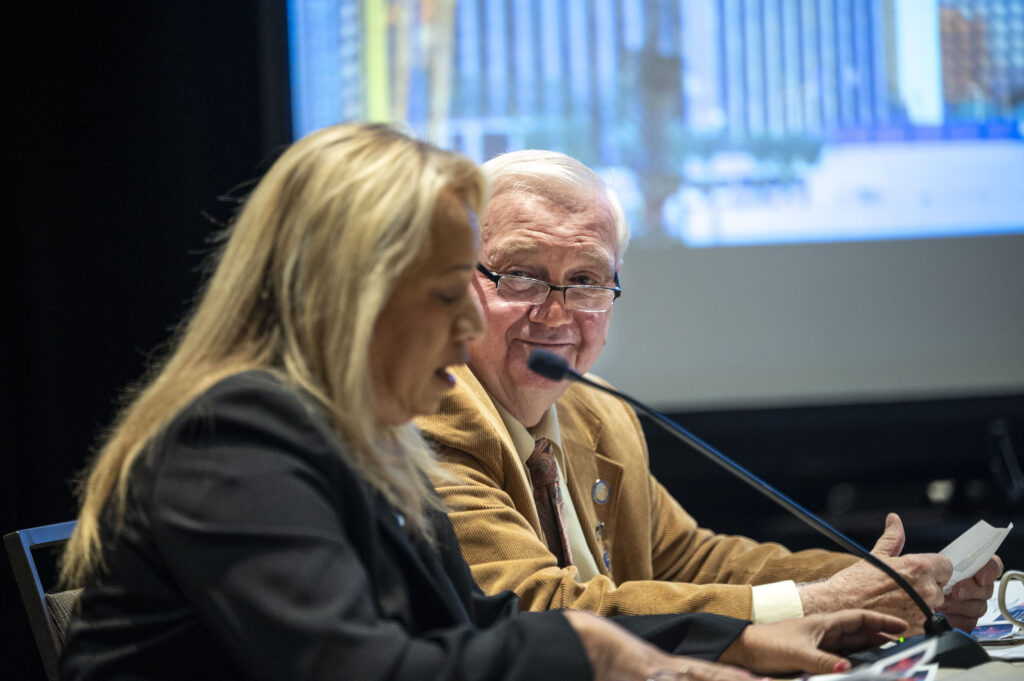Westrends Board Recap:
The co-chairs of the Westrends Board, New Mexico Senator Liz Stefanics and Wyoming Representative Landon Brown, sincerely appreciate Hawaii Senator Lynn DeCoite and Montana Senator Mike Cuffe, who agreed to introduce the speakers and facilitate the discussion on this critical topic.

More transmission is needed, and Regional Transmission Organizations (RTOs) can help
Rikki Seguin, Executive Director of Interwest Energy Alliance, explained that an RTO is an electric power transmission operator that coordinates, controls, and monitors a regional electric grid and is a critical tool for planning transmission. There are seven RTOs and Independent System Operators (ISOs) nationwide, covering two-thirds of the electricity consumed. Seven RTOs and Independent System Operators (ISOs) nationwide cover two-thirds of the electricity consumed. Though states must maintain grid reliability and keep costs low, there is a need for more renewables and transmission lines, given that 80% of energy use in the West aligns with state-driven decarbonization policies. Regulatory proceedings and state mandates in Western states are advancing progress toward RTOs. Colorado and Nevada have passed legislation signed by their Governors requiring utilities to join an RTO by 2030.
Suitable RTO structures are needed to enable grid reliability
Vijay Satyal, Deputy Director of Regional Markets at Western Resource Advocates, worked first as a policy economist for Virginia’s Department of Environmental Quality and later as a senior policy analyst at the Oregon Department of Energy, where he advised the Governor’s Office on renewable energy and emerging grid technologies. Independence is one of the critical components that Satyal highlighted, particularly an independent and transparent board, which is pivotal for utilities to join—a not-for-profit-minded model so costs can remain low and create consistent rules of the game for market operations. Investments in transmission and future needs are also necessary.
“A board that is independent and transparent is pivotal for utilities to join.”
Vijay Satyal, Deputy Director of Regional Markets, Western Resource Advocates
The Western Electricity Coordinating Council (WECC) provides resource-neutral grid reliability across the western region
Kris Raper is Vice President of Strategic Engagement and External Affairs at WECC. Raper works regionally and nationally to coordinate efforts, facilitate conversations, and educate others on matters critical to the reliability and security of the Western Interconnection. Her background as commissioner for the Idaho Public Utilities Commission and as one of two Western representatives on the Federal Energy Regulatory Commission (FERC) gives her a unique perspective on this work.
Raper started her presentation by recalling the 2003 Northeast blackout that extended to the midwestern United States and most parts of the Canadian province of Ontario that summer. The outage should have been manageable, but it was not by not being able to redistribute energy loads. The Energy Policy Act of 2005 directly resulted from this event, as the need to ensure reliability and transmission became national priorities. WECC is a non-profit corporation that FERC has approved as the Regional Entity for the Western Interconnection, which includes 14 Western states, 2 Canadian provinces, and Baja California. Raper also agreed that governance is central to how RTOs operate.